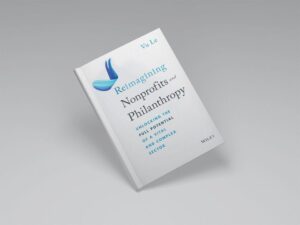
September 28, 2020; Pioneer Press
On Wednesday, trustees of the Otto Bremer Trust will once again be in court to face state charges. In August, NPQ reported on the accusations against the Trust, a $2 billion private foundation formed to help people and communities with grants for mental health and housing, crisis care for victims of domestic violence, and job placement for people with disabilities.
Among the alleged misdeeds are a 300-percent increase in salaries of three trustees and the purchase of an opulent office from which a trustee runs a for-profit company. Most alarming, though, is a plan by the trustees to sell voting stock in the trust to 19 out-of-state hedge funds. A separate board runs the bank that generates the profits for the trust, and that bank’s board sued the parent nonprofit last November, alleging that such a sale would amount to a “hostile takeover that would replace the board and set up the bank for sale,” reports Frederick Melo for Pioneer Press. Now the state of Minnesota is pursuing its own legal action.
The structure of the Bremer trust and its ownership stake in the bank is unusual in the US context. The Otto Bremer Trust owns 92 percent of Bremer Bank, the only US bank owned by a nonprofit. (Employees own the other eight percent.) For decades, dating back to 1949, this arrangement worked largely as intended; bank profits generated ongoing funding of the philanthropy, as founder Otto Bremer intended. In the last eight years alone, the foundation has provided $400 million to nonprofits in Minnesota, Wisconsin, and North Dakota.
In the US, having foundations own banks is nearly unheard of. Foundations were actually prohibited from owning businesses by law in 1969, and the Bremer Bank arrangement only persists because it was grandfathered in. But as NPQ noted last year, internationally, foundation ownership of companies is common. For instance, in Denmark, 20 percent of the nation’s gross domestic product is generated by foundation-owned businesses, and these businesses constitute an estimated 68 percent of the market capitalization of the Copenhagen stock market.
But there is always the temptation to do what in the co-op world is called demutualization. In other words, it doesn’t take a genius to realize that the trustees could earn far more money if their compensation weren’t limited by their mission. In Canada, right now, for example, Mountain Equipment Co-op—the Canadian equivalent of the 19-million-member US cooperative REI—is facing exactly this risk as trustees seek to cash out by selling the company to an outside US investor. (A member revolt may or may not succeed at stopping them).
In a different form, this appears to be the dynamic too with Otto Bremer. Specifically, it is alleged that the trustees are attempting to sell the bank and dissolve the 70-year affiliation. Ramsey County District Court Judge Robert Awsumb has received a request from the Minnesota attorney general to temporarily remove the trustees under suspicion. The attorneys for S. Brian Lipschultz, Daniel Reardon, and Charlotte Johnson, who are all listed as the Trust’s co-CEOs, filed a legal memorandum on September 21, 2020, refuting each allegation, denying self-dealing.
Voting members of a nonprofit, whether they are called directors or trustees, are generally not paid for their positions. Staff members who are also trustees, even at the CEO position, are demonstrating a conflict of interest, as the board of a nonprofit is critical in its governance. The board determines the salary for the president, CEO, or executive director. In effect, the three CEOs are voting for their own salaries.
In 2000, the trustees received a base pay of $42,000. Now, their three salaries come to $1.4 million according to the tax filing. Reviewing several years of tax filings does not reveal any other trustees or governance structure—Lipschultz, Reardon, and Johnson are the same three trustees listed on every 990PF since 1998. (1999 was the only tax filing not available).
Sign up for our free newsletters
Subscribe to NPQ's newsletters to have our top stories delivered directly to your inbox.
By signing up, you agree to our privacy policy and terms of use, and to receive messages from NPQ and our partners.
Trusts and foundations, who must spend five percent of their assets to provide grants to charities, expect and demand those charities be responsible with the funds. Foundations are required by the IRS to receive reports from grantees on how the funds are spent. The granting foundation should live up to the guidelines it sets for its grantees, with transparency and accounting for expenses.
Five years of tax filings show that between 2013 and 2017, the Bremer Trust gave away the required five percent of their assets, averaging about $48.6 million. Now that the assets have grown to $1 billion, the Trust will have to distribute $100 million, which is the reason cited for raising cash by selling the bank.
Attorney General Keith Ellison’s office issued a 31-page reply on Thursday to the trustees’ attorneys’ statement. “Trustees minimize their conduct, fail to address the harm, and generally take no responsibility for the conduct demonstrated by the attorney general,” it reads. “Not a single unnecessary day should pass with trustees continuing to act as fiduciaries for the trust while defending their own interests.”
Bremer, a $13 billion bank, is the largest lender for farms in Minnesota. Its funding region also includes Wisconsin and Montana. The legal troubles, as noted above, go back to last November, when the bank board sued the foundation for trying to sell bank stock to out-of-state hedge funds in order to set up a hostile takeover. If the bank board was replaced as the result of a takeover, it would ease the way to selling the foundation’s major asset—the bank.
The Bremer Financial Corporation, parent company for the bank, states through their attorneys that selling the shares to out-of-state investors betrays the original documents and the stated trustee fiduciary responsibilities, even in the event of “unforeseen circumstance”—with the foundation in control of the bank—that that founder, Otto Bremer, established almost 80 years ago.
Ellison’s office has also charged that the Trust employees work in an emotionally toxic environment, with no complaint structure and the threat of retaliation for voicing objections, with an employee describing a text message between Reardon and Lipschultz that referred to a female employee as a “doorknob.” The filing states, “Current and former trust employees testified that they feared retaliation by trustees.” The attorneys for the trustees say human resources issues must be addressed in separate legal action. Other employees and former employees indicated that there have been statements within the office regarding anti-Muslim and anti-Native American giving policies.
The Bremer Trust attorneys have requested a trial date by early 2021. The Minnesota attorney general will likely request more time. The judge could rule that the trustees temporarily step down, or the lawsuit “discovery” can go on for an extended period with the trustees in place. It appears there are more governance questions to ask this private foundation.—Marian Conway
Correction: This article has been altered from its initial form to reflect that Bremer operates in Minnesota, North Dakota, and Wisconsin.












